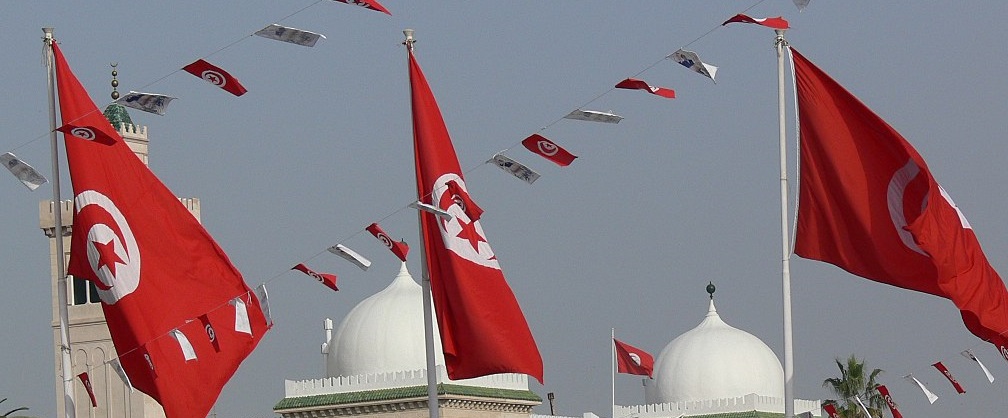On January 15, Tunisian security forces arrested prominent activist Kais Bouazizi in the city of Sidi Bouzid, after the publication of several posts to his Facebook page calling for demonstrations against the government. His arrest sparked a major political and social debate in Tunisia, with politicians condemning the arrest and lawyers volunteering for his defense.
Activists also responded, launching big campaigns on social media to demand his release. Kais Bouazizi is related to Mohamed Bouazizi, who is famous for having set himself on fire in December 2010 and inspiring the “Arab Spring.”
In a YouTube video shared on January 18, Anwar Jawadi, a close friend of Bouazizi and an activist in civil society, said: “Kais and I were sitting in a coffee shop chatting like usual, when Kais received a phone call from a police officer inviting him to the police station for a regular interrogation about the recent events that occured in Tunisia. So we went there and to our surprise they arrested him! He is now behind bars because of a Facebook post! Today it is Kais who got arrested, tomorrow who knows? It could be me or you or any Tunisian citizen who might criticize the current government (…) is this what we expect to happen after all we did for freedom of expression in Tunisia? Was the Tunisian revolution in vain? This is another way of muzzling the mouths of bloggers and liberals. Freedom of expression is a red line, so do not try to suppress us!”
On Saturday, January 20, a number of citizens and members of civil and political society took part in a demonstration in front of Sidi Bouzid governance headquarters. A protest march was held to demand the release of Bouazizi, who had been detained for a week. Bouazizi was among those who organized demonstrations in Sidi Bouzid to protest the Financial law 2018. He has been one of the voices calling on the authorities to listen to marginalized youth and invest in development.
Kais Bouazizi’s family and a number of his friends denounced his detention as abusive. They accused the authorities of silencing activists’ voices such as Bouazizi’s, in contravention of Tunisia’s 2014 Constitution guaranteeing the freedom of expression. Article 31 states that “Freedom of opinion, thought, expression, information and publication shall be guaranteed. These freedoms shall not be subject to prior censorship.”
In recent years, Tunisian authorities have detained Bouazizi several times, with most of the arrests taking place during the Troika regime. At the time, human rights organizations accused security forces of torturing him while in custody. Thanks to pressure from parliamentarians and civil society organizations, he was eventually released.
On January 23, the entire defense team for Bouazizi, consisting of more than 20 lawyers, insisted on representing him in court, rejecting the judge’s proposal of only four lawyers for the pleadings. This led the judge to postpone the proceedings to the last session. Expressions of solidarity extended outside the courtroom, with a gathering starting at 9:00 a.m. that included Bouazizi’s family and friends, young people from Sidi Bouzid, and representatives from civil society, human rights organizations, and members of the media.
When Bouazizi was subsequently released, his brother Zied told Access Now: “I think that the last remaining right in this ‘stolen’ revolution is to freely express our thoughts. I consider being detained or arrested while defending this right as an assertion of dignity. That is why we need to continue fighting because the path to freedom of expression is still far away.”
Access Now is relieved that Bouazizi has been released, but we remain deeply concerned about the fact that he was arrested in the first place, since it appeared to be in response to the publication of legitimate content on Facebook. We encourage civil society and public advocates to pay close attention to these kinds of rights violations and to mobilize to let authorities know that they are not acceptable. Tunisia is a state party to the International Covenant on Civil and Political Rights (ICCPR), and is therefore bound by its provisions. Freedom of expression is a fundamental right guaranteed in Tunisia’s Constitution and everyone should be able to enjoy it – online and off — without fear of an arrest like that of Kais Bouazizi.
